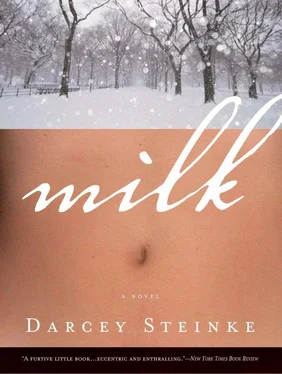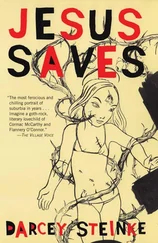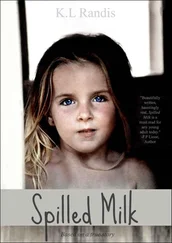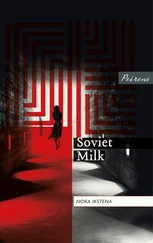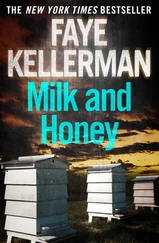A man in a knit cap passed by, and Walter pretended fascination with a flyer advertising massages tacked up to the tree across from the boy’s building. Walter cataloged bits of foil on the ground and loose cassette tape in the crease of the curb. His hands were freezing and he couldn’t stop shivering, nor could he stop thinking about the boy’s warm bed: the blue sheets with little butterflies on them and how his comforter and pillow were stuffed with duck-feather down. A light went on in a brownstone and he realized he’d spoken out loud. A tall woman with black hair and a long robe clenched at the waist looked at him severely, and he crossed the street and rang the boy’s bell. He was buzzed in immediately. The boy had seen him from the window! The boy would be waiting with a shy smile and a cup of chamomile tea!
In the elevator he decided he needed an excuse. He’d say he’d left his scarf, the cashmere one he’d bought last year in India. But he had his scarf on, the five-dollar one he’d bought on the street last week; so he yanked it from around his neck and shoved it deep down into his pocket. The apartment door was open and he walked briskly down the hallway into the boy’s living room.
It was dark — there was only the gray light from the television and the sound of a woman’s voice speaking in French. Denim legs entwined on the couch; Walter realized the Sanskrit boy was lying with someone else. The boy glanced behind him, lazily holding out a twenty-dollar bill. His eyes widened as he recognized Walter, and he jumped up.
“Can I use your bathroom?” Walter sputtered.
“No,” the boy said, “I thought you were the pizza guy. That’s why the door was—”
“Oh, let him,” the other boy said. He had a long soulful face and was sitting up now in the lotus position. “It’s at the end of the hall.”
There was a film around the hole in the toilet and a lacy frost on the sink spigot. The shower curtain hung off the rod and a little jade Buddha lay facedown in the soap dish. He heard the two boys arguing as he flushed the toilet and ran water into the sink.
Outside the bathroom, Walter felt himself sucked down the hallway and onto the boy’s bed. He lay in the dark, the comforter cool against his body, watching snow fall into the alley over the silver radiator. He heard footsteps and the overhead light flipped on and the Sanskrit boy’s face was red with rage.
“What the fuck are you doing?”
Walter was going to sit up and say that he felt better now, that he had a condition the doctors could never quite diagnose, part low blood sugar, part narcolepsy. But instead he just closed his eyes and pretended to sleep. The boy stood there a minute and then pressed the numbers on his cell phone and spoke into the receiver. The other boy came and stood beside him, and both stared down.
Walter slit his eyes just enough to see the pale orb of the Sanskrit boy’s head.
Snow was slanted against the windows of the parsonage kitchen and the little yard was blanketed; just the tips of the azalea bush pressed up over the full line of snow. Walter still smelled of piss and his arm ached from where the Sanskrit boy had yanked him up off the bed. He walked with his glass of ice water and stood in the living room. There was a shape on the couch and at first he thought his eye was superimposing the scene from earlier tonight, Sanskrit boy and brown-haired boy melded together on the couch.
“Father, my mother kicked me out,” Junot said, sitting up. “Mary said I could sleep here.”
“That’s fine,” Walter said. “Are you warm enough?”
Junot motioned to the blanket Mary had gotten from the hall closet. “It was awful, Father,” he said. “She said I was just like my dad. She kept saying ‘Arbol que crece torcido jamás su tronco endereza — cuando algo empieza mal, termina mal ,’ and that I was a crook and a bloodsucker.” The boy’s white T-shirt glowed in the dark room. And Walter saw out the window how snow was piled up on the boxwoods so that they looked like angel food cakes. “She threw my boom box out the window and said I was going to hell.” Junot’s teeth were white as sour cream and the expanse of his eyes was a liquid black.
“It sounds terrible.”
“I guess I give her problems,” Junot said sadly.
“Get some sleep now,” Walter said as he moved up the stairs. He wore only his underwear, and his cock was getting hard. An ice cube in his drink cracked. “In the morning, we’ll shovel.”
“Thank you, Father,” Junot said.
Walter rolled over, pressed himself into the mattress and covered the back of his head with a pillow. Junot’s lips, his eyebrows, the baby hairs at the nape of his neck. The way his jeans rode low on his hips . His skin was milky brown and he smelled like Carlos, crème soda and black pepper. Walter couldn’t take it anymore and stood up by the side of his bed. He put his hands on his hips. Snow rushed past the window, the darkness offsetting the chaotic pattern of rushing white.
Walter kneeled down and pulled out the enamel canister. The lid stuck at first, but by using the file on his nail clipper, he levered the top off, and there, in a plastic bag tied with a twisty, was what remained of Carlos. He looked at the white ash and bits of gray bone matter.
That people you loved died was unacceptable. Also that people you fucked wanted you to vanish was unacceptable. But really it was mostly that people you loved died — this was completely unacceptable.
He sat the canister on the nightstand and lit a cigarette, blew out a tendril of smoke. Carlos had been explicit about his ashes; he wanted them scattered down by Bargemusic. Walter had been putting it off, but as soon as it got light he decided to walk down to the bridge. He thought of the ashes floating down into the East River, the fine gray dust burnt clean and pure.
JOHN SHAVED OFF his beard, then laid his surplice out on the bed along with the gold ring the order gave him when he’d taken his vow. He moved around his cell slowly. He was worried about rousing Brother Peter, with whom he shared a bathroom and who was a notoriously light sleeper.
He’d been winnowing his possessions for weeks and had just a stack of old letters secured with a rubber band, an envelope of money he’d saved from his weekly allowance and the crucifix that had hung over his bed. He wore khakis, a white button-down and his tennis shoes as he walked down the long hallway past the meditation garden with the dogwood tree and wood benches and through the common room, where the New York Times lay on the round table alongside the Christian Science Monitor . He saw the stone hand that sat on a side table and the photo of the order’s monastery in Zimbabwe.
The ratty velvet couch, the bronze lamp with the linen shade, the worn oriental, everything was soaked through with incense and loneliness, and he couldn’t wait to get out. The carpet runner ended and his tennis shoes squelched against the wood. He went up on tiptoe as he passed the kitchen door. He knew Mac was inside preparing the monks’ breakfast.
Mac looked more like a wizard than a monk with his long gray hair and beard. He’d worked most of his life in a leprosorium in Africa, and when John first came to Holy Cross, he’d sat next to him at meals listening to Mac’s stories: the legless girl who rolled around on a wheeled pedestal and the old man with a face so disfigured he wore a hood with eye slits. The central symbol of Mac’s life was the round communion wafer lying in the palm of a leper’s hand.
As quiet as he tried to be, the door swung open and he was blinded with fluorescent light.
Читать дальше
